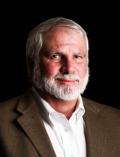Instructed to Judge- The Greatest Christian Life, Part 30
As we have covered, it is a common belief that Christians have been instructed not to judge. But nowhere does Jesus say that, and nowhere is this said in the Scriptures. Some flawed English translations give the impression that Jesus said this when He talked about taking the log out of our own eye before trying to remove the speck from someone else’s eye. However, what He taught there and elsewhere is not to judge wrongly.

